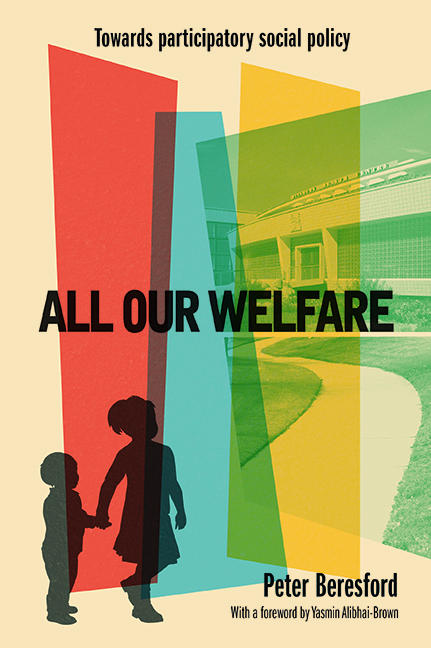Book contents
- Frontmatter
- Contents
- List of photographs and sources
- Foreword
- Dedication
- Acknowledgements
- Introduction Owning not othering our welfare
- Part One The legacy of the past
- Part Two The way to the future
- Afterword The future: a different way forward?
- Appendix One The family
- Appendix Two Research projects and related publications
- References
- Index
Four - The welfare state and pressures from the war
Published online by Cambridge University Press: 01 September 2022
- Frontmatter
- Contents
- List of photographs and sources
- Foreword
- Dedication
- Acknowledgements
- Introduction Owning not othering our welfare
- Part One The legacy of the past
- Part Two The way to the future
- Afterword The future: a different way forward?
- Appendix One The family
- Appendix Two Research projects and related publications
- References
- Index
Summary
It will be the same old story, those who can pull the strings will be all right, the other poor buggers can look after themselves.
(Army tradesman interviewed by Mass Observation, 1943, quoted in Kynaston, 2008, 45)Keeping going fighting in the war…We had a feeling deep down inside us that we were fighting for you – and all the other babies…all these people were fighting for you, Tim.
(A Diary for Timothy, documentary film (Jennings, 1945))The problems of victory are more agreeable than those of defeat. But they are no less difficult.
(Winston Churchill, 1942, in Churchill, 2011)It’s difficult in retrospect to have any idea of how catastrophic and chaotic life in Europe was by the end of the war, not least because so few signs of this remain. While the UK had not suffered the material and psychological effects of invasion and occupation, its post-war commitment to radical domestic reform, social change and equality are nonetheless amazing, particularly by today’s standards of political short termism. While Britain set to work to create the welfare state, Europe was the site of an explosion of violence and brutality. This included civil war, ‘ethnic cleansing’ rape and murder, which were rife for years. The breakdown of law and order extended from Poland to Italy and France and Yugoslavia, to Germany and Greece (Lowe, 2013; Buruma, 2013).
With the certainty that comes from hindsight, some modern analysts have argued that: ‘It is unlikely that something along the lines of the Welfare State would have been long delayed had the war not intervened’ (Hylton, 2010, 214).
As Bentley Gilbert wrote in his history of social policy between 1914 and 1939:
The Beveridge Report and the White Papers on National Insurance and the National Health Service, children’s allowances and the announcement of a policy for full employment were all products of wartime experience… More important, they represented attempts to find solutions to problems of peace…The destruction of wealth between 1939 and 1945 made action more immediately necessary, but the war itself did not bring the welfare state. (Gilbert, 1970, vii)
Truth to tell though, while some commentators, as we have seen, have also made a linear connection between the 1906–11 Liberal social reforms and the creation of the welfare state, there can be no evidence for such assertions and there were no certainties at the end of the war.
- Type
- Chapter
- Information
- All our WelfareTowards Participatory Social Policy, pp. 65 - 80Publisher: Bristol University PressPrint publication year: 2016



